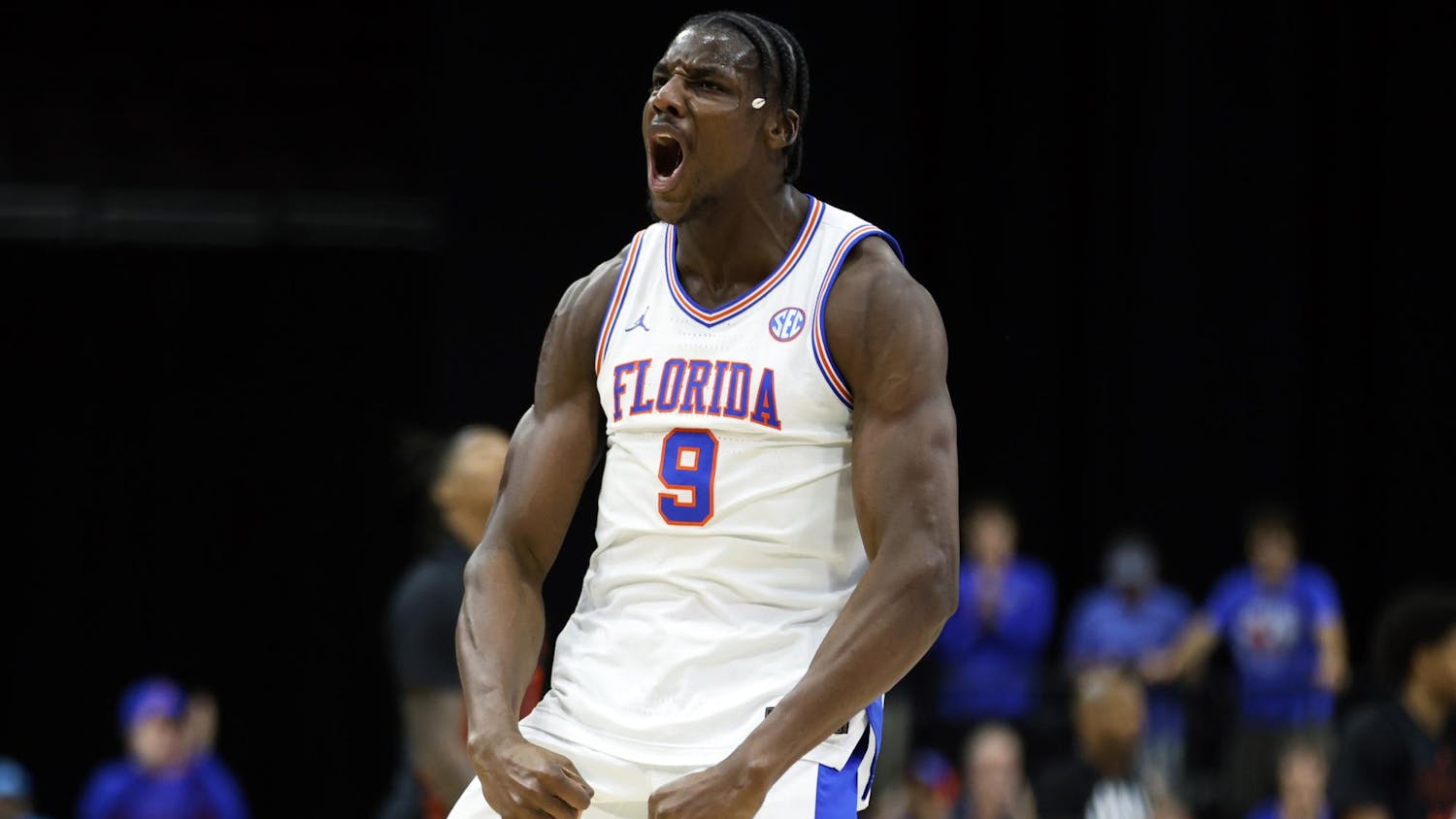Editor's Note: This is the conclusion of our four-part alligatorSports series in which we examine whether college athletes deserve to be paid for their athletic efforts.
An alternative to paying student-athletes is to improve their athletic and educational experience in ways other than paying them.
"The UAA will continue to plan a strong focus on facilities, as we believe they are one of the strongest statements we can make about our commitment to our athletic programs," the University Athletic Association said in its budget.
Completed in August 2008, the "Gateway of Champions" project renovated, expanded and created a new entrance into the football office complex. A new banquet/video room was created, and the strength and conditioning complex was expanded.
In 2007-08, the UAA completed a renovation of the Office of Student Life that enhanced the staff offices and work areas. This renovation will help provide academic assistance to student-athletes.
The construction of a new facility to support women's lacrosse finished up this summer, and an audio-visual display to honor the achievements of the UF men's basketball team was added to its practice facility.
In 2008-09, there was also a budget increase of $430,000 toward men and women's scholarships. This number reflects the increase in tuition, room and board and fees administered by the university.
To help educate his players about the current job market and how to manage money, Urban Meyer set aside Tuesday night meetings during spring practice to put the Gators through informational sessions.
"One of the problems with college athletics is kids leave here and keep asking for their Pell Grant checks and scholarship checks, and that's going to stop," Meyer said. "You see so many professional athletes blow their money because they weren't taught. We're teaching them right now.
"We've taken football time and taught them how to go get a job and all the things this university can do for you in the job market."
Beyond improvements and seminars, University of Vermont law professor Michael McCann has another solution.
"My argument would be that it isn't as much that they deserve to be paid, but they deserve the opportunity to go play pro sports," said McCann, who writes a column for Sports Illustrated and helped represent former Ohio State running back Maurice Clarett in his case against the NFL.
"If they defy that opportunity and go to college, that's their own decision. There are benefits to doing either. I think in the NBA, players should be able to go directly from high school without a year off."
This opportunity would make college more of a choice than a necessary stop en route to the pros, McCann said, leaving less room to gripe about compensation. Moreover, his 2004 study found that from 1995 to 2003, more than 80 percent of drafted high school players became or will become multi-millionaires by the age of 21.
The study also shows that these players have maximized their earning potential by becoming unrestricted free agents by the age of 22, while graduating players will be bound by the rookie salary scale.
He also broke down the myth that the lack of a college education leads to more disciplinary problems and showed "most players who skip college may earn as much as $100 million more over the course of their careers than if they had done the 'smart thing' and earned a college diploma."
While this system is unlikely to work with college football, it would make the pay-for-play argument less credible with basketball.
For football, Tampa sports talk radio host and former Miami football player Dan Sileo said student-athletes deserve the ability to test the waters of the NFL Draft in a fashion similar to basketball players.
Currently, football players can ask a panel to review and evaluate their draft stock, but once they declare for the draft, there's no returning to college. Basketball players can declare for the draft but retain college eligibility by not hiring an agent.
And Florida receiver David Nelson believes there's value in not being paid. While he treats playing football and taking classes as a job, he doesn't see his predicament as a sob story.
"It is frustrating, but at the same time, when you signed your scholarship, you came to Florida to play football and be a student-athlete," Nelson said. "You're supposed to be a student-athlete, always go to class and give 100 percent to your studies and to football. You have to get your mind right before you come so you're ready for what's about to take place."
Furthermore, Nelson fears that paying college athletes would take away from the spirit of the game.
"If you add the paying component to it, it takes away from the atmosphere and love that makes up college football," he said. "You look at the NFL, and it's a job and a business. It's all about the individual and how much money they're getting. In college, it's all about doing what you can for the team and the university.
"If you add that paying component in, it takes away from the atmosphere and camaraderie we have between the team and student body. People ask me all the time if we should get paid, and I don't think so."
Melissa Rodgers contributed to this report.





